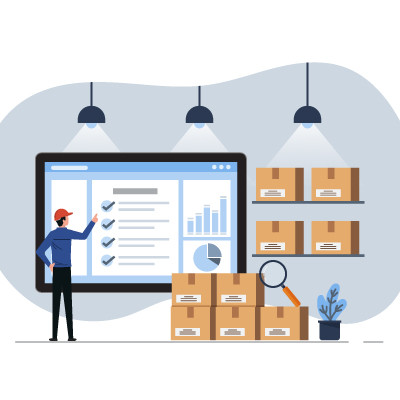Our phones, laptops, smart home devices, and even our cars are packed with data about our lives. But what happens when law enforcement wants access to that information? Whether you're an individual just trying to keep your personal data safe or a business owner handling customer information, here’s what you need to know.
BNMC Blog
If you think cybercrime doesn’t affect you or your business, think again. It’s more real a threat than you probably realize, especially with how common data theft is these days. Today, we want to highlight some of the ways that data theft can affect you, even if your data hasn’t necessarily been stolen.
No business ever wants to suffer a data loss disaster, but that doesn’t mean that it’s not coming for you at some point during your operations. You have to be careful and take calculated steps to minimize the impact of such an incident. In particular, you want to avoid losing these three types of data, for it could make recovery all but impossible if you don’t.
Like it or hate it, it is undeniable that social media is a massive part of the culture. What were once cool websites that you could connect with people of like interests, or at least your extended family and friends you haven’t seen in a while, now are multi-billion dollar businesses that have influence over social trends, politics, and many other social constructs we depend on daily. With social media being so entrenched in the fabric of our digital worlds, it’s important to know exactly where you stand in regard to your individual rights and privacy. Let’s take a look at one contemporary situation that is sure to have ripple effects throughout society in the months and years to come.
The Internet offers boundless opportunities… for those willing to take a few risks. Data privacy is a hot-button issue regarding the Internet, as most websites and social media platforms can track your activity and sell it to advertisers (or even train AI systems). Here’s how you can keep this to a minimum.
Businesses face a myriad of challenges, many of which originate from within their walls. Whether it's dealing with cyberthreats, dissatisfied customers, or unreliable suppliers, every business leader must navigate various internal and external issues. However, internal problems can sometimes be the most disruptive. Today, we’ll explore two significant employee-related challenges that can create substantial obstacles for business owners.
Data powers businesses, but it’s not just confined to the professional world—we share vast amounts of data in our personal lives, too. Even seemingly trivial communications like chats, grocery requests, and meme or pet picture exchanges are data. And wherever there’s data, there’s a place where it’s stored.
For years, you've heard about the growing role of technology in healthcare, promising to stabilize costs, improve access, and personalize care delivery. As these innovations take hold, however, they also raise serious concerns about data privacy. Today, we’ll explore some of the technological advancements in healthcare and their implications for patient data privacy.
In the pursuit of harnessing data effectively, businesses use various strategies like business intelligence and artificial intelligence integration. Accurate and reliable data is very important. Wrong data can cause mistakes and give wrong information. Thus, understanding how to clean or scrub data is essential for anyone involved in business intelligence or AI. This guide will explore data cleaning and provide a simple starting point.
Secure and reliable file sharing is crucial for businesses, enabling collaboration, communication, and promoting improvements to an organization’s productivity. With the rise in cyberthreats, however, it's imperative to have a plan in place to ensure the security of your files while they are in transit. Here are some best practices for secure business file sharing.
In the world of business logistics, inventory management plays a pivotal role. It's the backbone that keeps operations running smoothly, so it shouldn’t be a surprise that efficient inventory management can be a game-changer for small and medium-sized businesses. It can lead to cost savings, improved service levels, and overall business success.
But what does inventory management efficiency really mean? It’s simple.
Technology is a major part of all people’s lives, with the most used and pervasive technologies having been created by large corporations that can seemingly do whatever they want without repercussion. Let’s look at the efforts to keep this “big tech” under control and why it’s important for society.
The value of your business is directly linked to the data it gathers. Neglecting to leverage this data means leaving potential revenue untapped. Small and medium-sized businesses (SMBs) must seize every strategic advantage available, and harnessing big data is a powerful way to outpace competitors. Let's delve into how big data can revolutionize your operations.
SMBs need to prioritize data security and privacy throughout their operations, but the type of security will depend heavily on the nature of that data. Some of the variables include the specific types of services offered, industry regulations, and the types of transactions accepted. Here are some of those types of data and how they should secure that data.






















